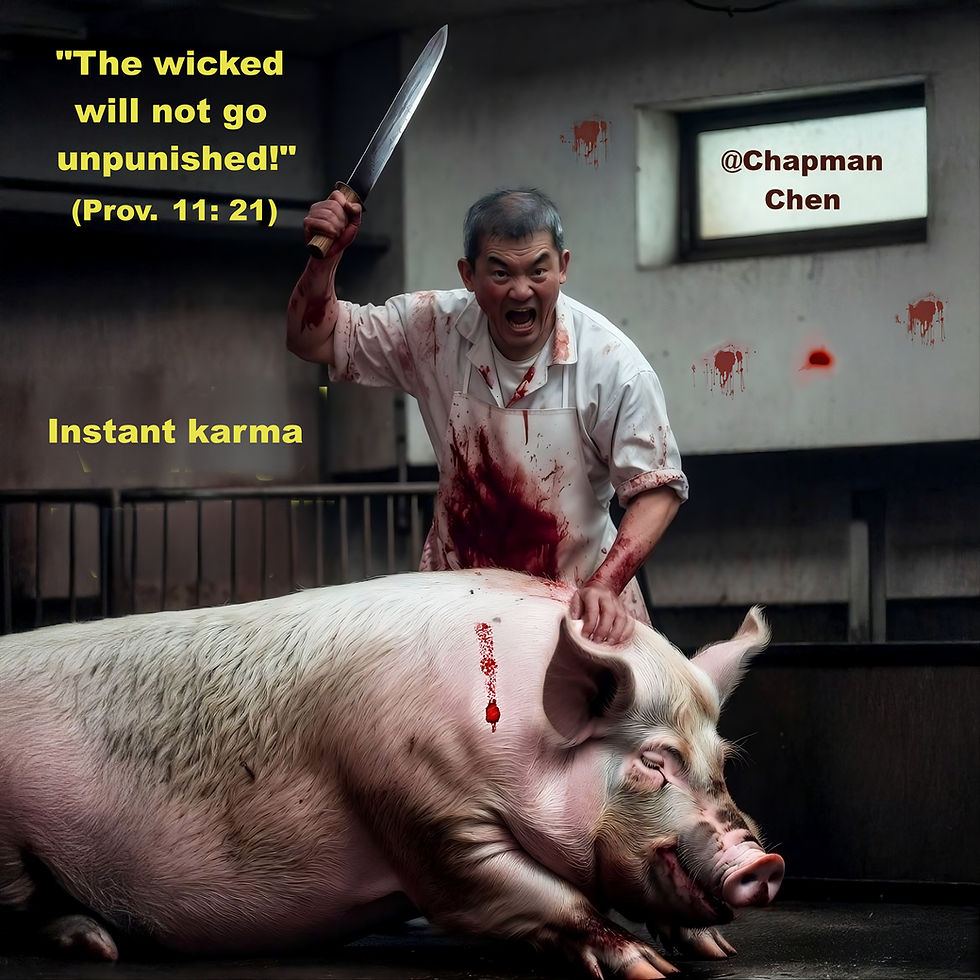“No One Will Snatch My Sheep!” ~ Jesus. By Dr. Chapman Chen
- Chapman Chen

- Jul 26, 2025
- 2 min read

“My sheep listen to my voice; I know them, and they follow me.I give them eternal life, and they shall never perish;no one will snatch them out of my hand.”— John 10:27–28 (NIV)
“I am the good shepherd. The good shepherd lays down his life for the sheep.”— John 10:11 (NIV)
In these verses, Jesus reveals Himself as the Good Shepherd who knows His sheep, protects them, and lays down His life for them. This imagery is both a symbol as well as a fat. “The sheep” refer not only to human followers who listen to the compassionate voice of the Vegan Christ, but also to actual animals — vulnerable, innocent beings so often raped, exploited, and murdered by humans.
1. Sheep as Symbol and Reality
On the one hand, sheep symbolise those human souls who truly follow Christ — who hear His call to love, mercy, and nonviolence. On the other hand, they are also the literal animals whom Christ aligns Himself with: the voiceless victims of systemic cruelty, treated as mere property in a fallen world.
When Jesus says, “I know them,” He is not speaking abstractly. He is expressing deep solidarity with the oppressed — human and nonhuman alike. When He promises, “No one will snatch them out of my hand,” He is raising a divine shield over all who suffer unjustly, especially the innocent creatures of God.
2. Eternal Life for the Innocent
“I give them eternal life,” Jesus proclaims — not only to rational believers, but to all who dwell under His care. This includes animals, who — though voiceless in our language — are not voiceless to God. They too are part of creation groaning for liberation (Romans 8:21–22). In Christ’s kingdom, no creature is forgotten. No being is disposable.
3. The Shepherd Who Dies for the Sheep
Crucially, Jesus does not kill for the sheep — He dies for them.
“The good shepherd lays down his life for the sheep.”
This is a direct rebuke to the logic of sacrifice. Instead of sacrificing animals for satisfying human appetite, He becomes their defender — not metaphorically, but in embodied protest against their slaughter. In liberating the sacrificial animals from the Temple, and in calling it “a den of murderers” (Mark 11:16, etc.), Jesus debunked its fraudulent and violent nature, and disrupted the lucrative income stream of the high priests and scribes, who immediately afterward plotted to kill him (Mark 11:15-18), eventually leading to His arrest, trial, and crucifixion (cf. Akers 2000, 113-134).
4. Conclusion: A Promise and a Call
John 10 is not just a comforting pastoral passage — it is a revolutionary declaration. Jesus, the Vegan Christ, pledges eternal life and inviolable safety to those who follow Him and to the innocent ones humans seek to destroy. He refuses to let anyone be snatched from His hand.
To walk in His footsteps is to refuse complicity in harm. It is to become protectors, not predators — to embody the Shepherd’s love for both human souls and animal lives.
Let us hear His voice. Let us follow. And let us be among those who shield the innocent — until no one, ever again, is snatched away.





Comments